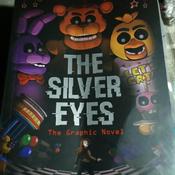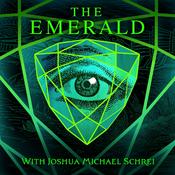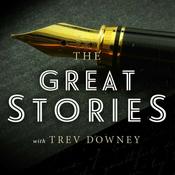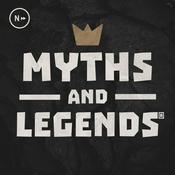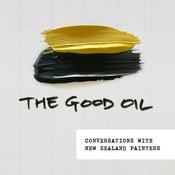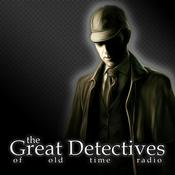146 episodes
- Dame Imogen Cooper is one of Britain’s most esteemed concert pianists. Having played since the age of five, she was mentored by the great Austrian born pianist Alfred Brendel before making her name internationally with interpretations of works by Schumann, Schubert and Mozart. She is renowned as a reflective, poetic sensitive performer in the concert hall and recording studio. She was made a CBE in 2007, became the first pianist to be awarded the Queen’s Medal for Music in 2020 and, the following year, became Dame Imogen. She recently announced that, at the end of the year long international tour, she would be retiring from live performance in early 2027.
Producer: Edwina Pitman
Archive used:
Face The Music, BBC2, 12 November 1975
Schubert, Allegretto in C minor D915 played by Imogen Cooper at the Wigmore Hall on 18 January 2026 - Award-winning actor Sir Jonathan Pryce talks to John Wilson about his cultural influences and career. He made his name with the 1975 Trevor Griffiths play Comedians, his role as a stand-up comic winning him a Tony Award after it moved to Broadway. He won an Olivier Award for a landmark production of Hamlet in 1980, and another Tony for his role as The Engineer in Miss Saigon. His huge and diverse list of film credits include Terry Gilliam’s 1985 dystopian drama Brazil, the musical Evita alongside Madonna and, an Oscar nominated performance as Pope Francis in The Two Popes. And he’s been increasingly prolific in the age of television streaming with acclaim for his roles in Game Of Thrones, The Crown, Taboo, Slow Horses and Wolf Hall. He was knighted for services to drama in 2021.
Producer: Edwina Pitman
Archive used:
Listen With Mother, BBC Home Service, 7 February, 1950
Is Your Honeymoon Really Necessary?, Whitehall Theatre, BBC1, 1940s
Protests on Broadway, 6 April 1991
Comedians by Trevor Griffiths, 2nd House, BBC2, 15 March 1975
Jonathan Pryce in Hamlet, The Southbank Show, ITV, 1988
Brazil, Terry Gilliam, 1985 - Theatre and opera director Katie Mitchell talks to John Wilson about her career and formative influences. She is renowned for her experimental storytelling on stage, her feminist perspective, and for contemporary reframing of classic plays, she has directed more than 100 productions over more than 30 years. She has worked at the Royal Shakespeare Company, the Royal Opera House and the National Theatre, where - as associate director - she staged bold new versions of work by a wide range of writers including Aeschylus, Virginia Woolf, Chekhov and Sarah Kane. For many theatre goers, she is one of Britain’s most important and innovative living directors.
Producer: Edwina Pitman - American photographer Annie Leibovitz talks to John Wilson about her career and cultural influences. For over 50 years she has captured rock stars, actors and politicians in the pages of Rolling Stone magazine, Vanity Fair and in museums & galleries around the world. She is renowned for elaborately designed shoots, sometimes involving multiple celebrity sitters, and creating images that have a cinematic or painterly quality. Her best known photographs include John Lennon just hours before he was murdered, a naked and heavily pregnant Demi Moore – and Queen Elizabeth the second in the state rooms of Buckingham Palace.
Producer: Edwina Pitman
Archive used:
The Rolling Stones at the LA Forum, 1975, BBC Radio 1
Report on the shooting of John Lennon: NBC News, 8 December 1980
Report on the Vigil for John Lennon in Central Park New York: WABC-TV, Channel 7 Eyewitness News, 14 December 1980
Annie Leibovitz photographs Queen Elizabeth II at Buckingham Palace:
2 clips from Monarchy: The Royal Family at Work: The State Visit; co-produced by BBC & RDF Media, 26 November 2007, BBC1 - Oscar-winning Mexican filmmaker Guillermo del Toro talks to John Wilson about his cultural influences. From his 1992 debut Cronos to his recent big budget spectacular retelling of Frankenstein, del Toro’s 12 feature films mix fantasy, horror and Gothic romance to create modern fairy tales about innocence, brutality and redemption. His movies have won eight Academy Awards including three for Pan’s Labyrinth in 2006, and four Oscars for The Shape Of Water in 2017, plus seven BAFTAs and three Golden Globes.
Producer: Edwina Pitman
Archive used:
Clip from Pan's Labyrinth, Guillermo del Toro, 2006
Clip from Frankenstein, Guillermo del Toro, 2025
Clip from Frankenstein, James Whale, 1931
Clip from I Confess, Alfred Hitchcock, 1953
More Arts podcasts
Trending Arts podcasts
About This Cultural Life
In-depth conversations with some of the world's leading artists and creatives across theatre, visual arts, music, dance, film and more. Hosted by John Wilson.
Podcast websiteListen to This Cultural Life, Table Manners with Jessie and Lennie Ware and many other podcasts from around the world with the radio.net app
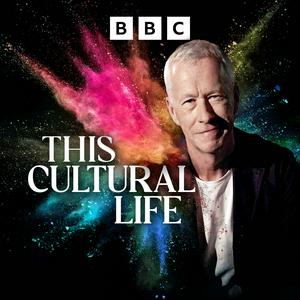
Get the free radio.net app
- Stations and podcasts to bookmark
- Stream via Wi-Fi or Bluetooth
- Supports Carplay & Android Auto
- Many other app features
Get the free radio.net app
- Stations and podcasts to bookmark
- Stream via Wi-Fi or Bluetooth
- Supports Carplay & Android Auto
- Many other app features


This Cultural Life
Scan code,
download the app,
start listening.
download the app,
start listening.






















